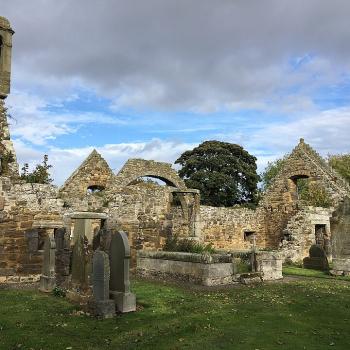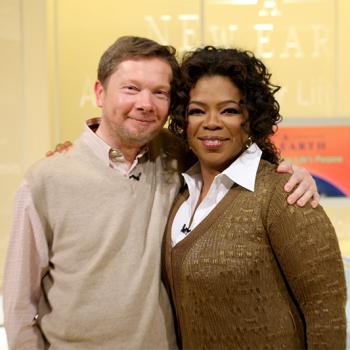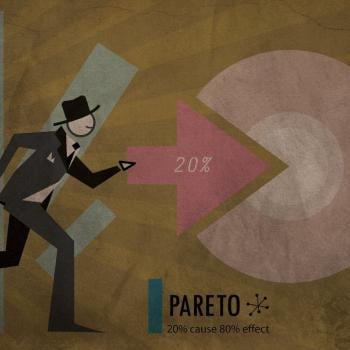“We can’t take back what happened,” I said. “We can’t make it go away as though it never took place. But I want to tell you some good news.” He looked up from his feet. I continued, “You are a Christian, right?”
He nodded his head. Good. “Then, you believe Jesus died for your sins?”
His eyes began to well up again with fresh tears. If there were two things I felt he needed to understand before we parted ways, this was the important one -- forgiveness. God loves this teenage boy, and God wants to forgive him.
He told me how he wants to believe that God will forgive him, but protested, “How can God forgive me? I’ve done some really bad things. I can’t even look my own dad in the eye, how can I ask God to forgive me?”
I tried to explain, “God can forgive because he sees differently than we do. There’s the psalm that says ‘even before we came into being, God knew us.’ (Psalm 138) He fashioned you and me with a purpose in mind; he made us in his image, to be holy and good. When we get off track of that purpose, we know it. Things fall apart. But God doesn’t stop loving us. . . . No, he’s waiting anxiously for you to turn to him and ask to be forgiven. He wants to help you get back on track. Do you believe this? Do you believe God loves you and is wanting to forgive you right now?”
The young man’s tears slid down his cheeks . . . tears of repentance and hope. “Yes, I want to believe that God will forgive me. But I don’t know how to ask him.”
With questions, I led him through an examination of conscience. “First, you need to accept the things you did wrong -- the ways you’ve hurt others and hurt your relationship with God. Do you accept these wrongs?”
Pondering for a moment, he replied, “Yes.”
I continued, “Next, you need to tell God you’re sorry for what you’ve done. Are you sorry?”
“Yes,” he said again. I encouraged him to pray in his heart, to speak to God there and ask forgiveness.
After a minute or so passed by, I helped him pray a prayer of contrition:
My God, I am sorry for my sins with all my heart.
I know in choosing to do wrong and failing to do good,
I have sinned against you whom I should love above all things.
I firmly desire, with your help, to set things right,
to try to sin no more, and to avoid whatever leads me to sin.
Our Savior Jesus Christ suffered and died for us.
In His name, my God, have mercy on me.
Amen.
Afterward, we prayed the Lord’s Prayer together.
He seemed a bit better, but I could see there was something still nagging at him. He felt terrible about himself, and felt terrible about how he imagined others saw him too. In truth, I was afraid for him. Starting over is hard enough, but how do you keep guilt from coming back to destroy you?
I told him honestly how those thoughts might come back to haunt him for a long time, and they might try to drag him down. When thoughts come to tempt us, telling us, “we’re not good,” or try to keep us in the darkness of our past, do we listen to those voices and allow them to enslave us in sin? Or do we cling ever more to our need for Jesus Christ and his sacrificial love on the Cross, and choose to live even more for him? It is when we fall in a moment of weakness that we are given a new choice, which either leads us into a pattern of sin or into a pattern of deeper trust and relationship with God. This is what defines our life, in the choices that follow our mistakes. For the Christian, that means admitting when we are wrong, and when possible, to help set things right for the people who were hurt by our actions. To apologize with sincerity, and to try harder in the future to choose better.
For the Catholic, an intrinsic part of our choices includes the recognition of Jesus in the Sacraments, and in particular in the Sacraments of Reconciliation and the Holy Eucharist. These two provide food for our spiritual journey. The prayer I used with my young friend is a traditional prayer used by many after confessing their sins to a priest in the confessional. It is also a good prayer to pray as we examine our conscience at the end of each day, as we strive to live tomorrow more as our Lord would want. And in the Holy Eucharist, we find Christ truly present, to enter into us when we receive Him through Communion at Mass. Before receiving, we hear the words, “This is the Lamb of God, who takes away the sins of the world. Happy are those who are called to his supper.” To which, the faithful respond, “Lord, I am not worthy to receive you, but only say the word and I shall be healed.”
My young friend seemed to be taking in what I was saying, and asked where I go to Church. From our position at the top of the hill, heading down, I was able to point over in the shallow valley toward the grove of palm trees that embrace the Church. It happened to be the first Friday of the month when we met, so I told him, “The Church is open all day today and all through tonight for people to come before Jesus in the Eucharist and to pray. We believe that he is truly present in the consecrated bread offered on the altar. It would be a good new beginning for you to go there and tell him what is in your heart. Jesus loves you so much, and he waits for you. When you feel doubt creep in, tell Him, ‘Jesus, I love you. I trust in you.’”
His forehead was no longer filled with lines of worry, and his gaze was steady, no signs of fear or distress like before. And then, he smiled, thanking me for the help. He turned to go, and hesitated, and turned back to me and gave me big bear hug, like one a friend gives another when they haven’t seen one another for a long, long time. It was a hug, welcoming him back to the fold.




